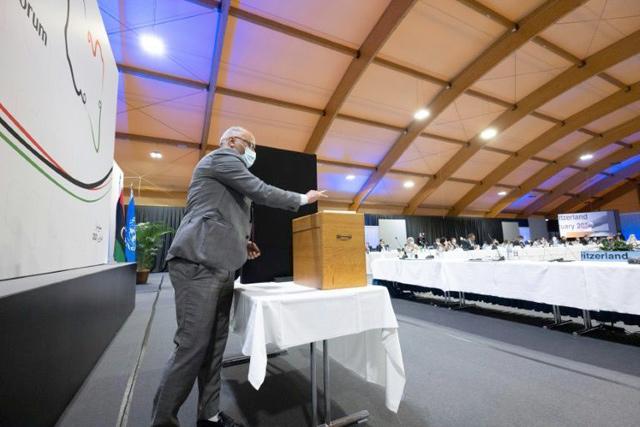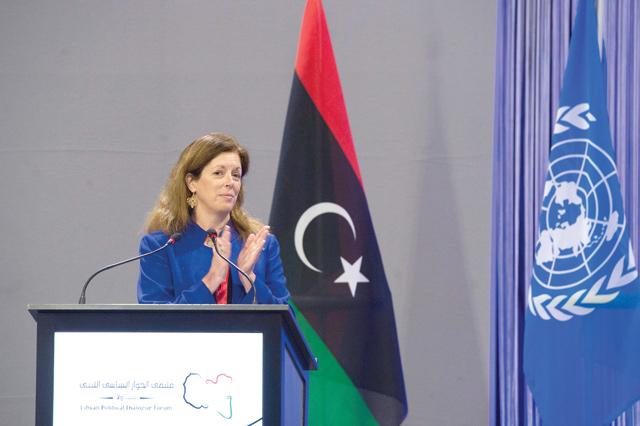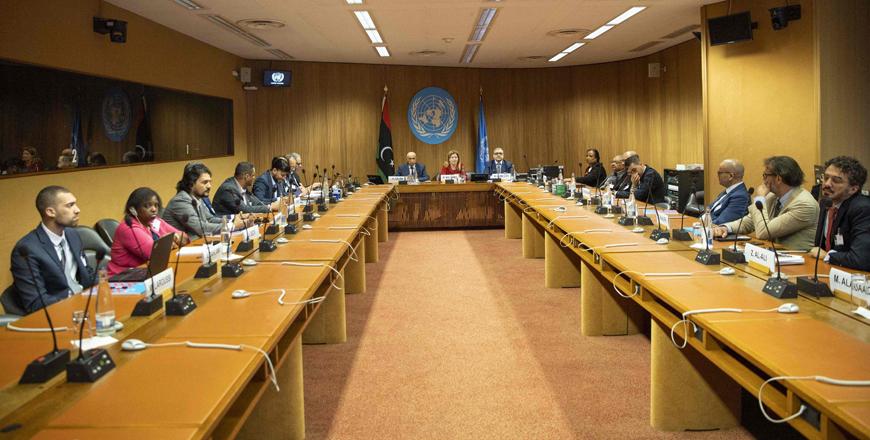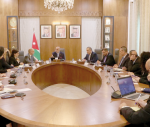You are here
Key vote on Libya transitional gov’t goes to second round
By AFP - Feb 02,2021 - Last updated at Feb 02,2021
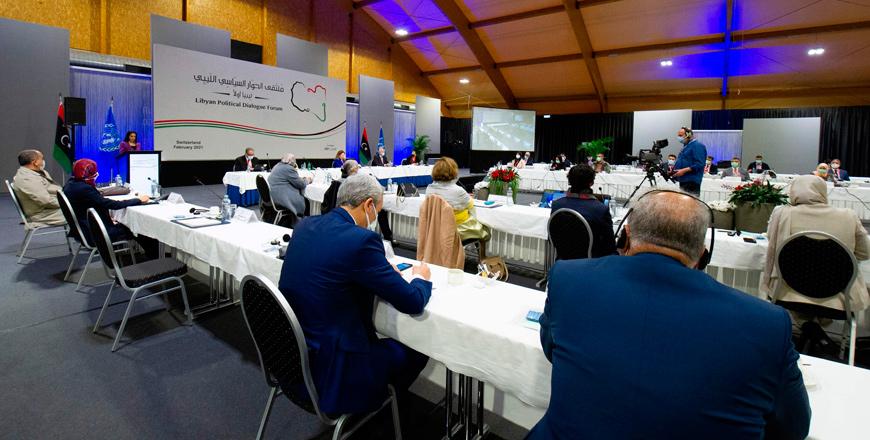
This handout photo made available by the United Nations (UN) shows delegates at the opening of the Libyan Political Dialogue Forum on Monday at an undisclosed location near Geneva to choose a new temporary executive to lead the war-scarred country through a transition until scheduled December elections (AFP photo)
TRIPOLI — Libyan delegates at UN-backed talks held the first round of voting on Tuesday for a three-member presidency council, part of a new transitional executive to govern the war-ravaged North African country until December elections.
That is part of a complex process it is hoped will help shepherd the deeply divided country towards peace and build on a fragile ceasefire to end over a decade of devastating conflict.
Oil-rich Libya has been torn by civil war since a NATO-backed uprising led to the ouster and killing of long-time dictator Muammar Qadhafi in 2011, and the country has become a key corridor for migrants fleeing war and poverty in desperate bids to reach Europe.
The 75 participants at the Libyan Political Dialogue Forum near Geneva — selected by the UN to represent a broad cross section of society — were shown on footage broadcast live by the UN casting their ballots in three boxes, each representing a region.
But with none of the 24 candidates meeting the required threshold of 70 per cent of votes, elections moved to a second round.
The three council posts, a president and two vice presidents, will represent Tripolitania in the west, Cyrenaica in the east and Fezzan in the south.
The 24 candidates for the three posts gave campaign speeches on Monday via videoconference, with many calling for reconciliation and the withdrawal of the estimated 20,000 foreign forces and mercenaries still on Libyan soil.
‘Uplifting to see’
According to the UN, the future transitional council will be tasked with “reuniting state institutions and ensuring security” until elections slated for December.
Control of the country is now split between the Tripoli-based Government of National Accord (GNA) and its rival, the eastern-based House of Representatives backed by military strongman Khalifa Haftar, who launched a failed offensive to seize the capital in 2019.
A fragile ceasefire agreed in Geneva in October has largely held, despite threats by Haftar to resume fighting.
The speaker of the Haftar-allied parliament based in Tobruk, key powerbroker Aguila Saleh, took nine votes on Tuesday to become the leading eastern candidate.
The top western candidate was Khaled El Mechri, who heads the High State Council aligned with the GNA, with eight votes.
From the south, Abdel Majid Ghaith Seif El Nasser, Libya’s ambassador to Morocco, descended from a long line of influential tribal leaders in Fezzan, took six votes.
But with none of the top three meeting the threshold, the next round of voting will be based on a list-based system, the UN announced.
“It is going to be complicated,” said Claudia Gazzini, from the International Crisis Group think tank, on Twitter.
“Much can still go wrong. But it is uplifting to see candidates delivering political speeches, rather than making hate-filled declarations of war.”
Delegates have until Friday select from 21 candidates vying for the post of prime minister.
The current GNA Interior Minister Fathi Bashagha, a heavyweight in local politics, is a favourite for the job.
The political talks kicked off in mid-November in Tunisia, where the 75 delegates were tasked with laying out a roadmap towards elections.
In mid-November, participants agreed to organise “national” elections on December 24, 2021.
Related Articles
GENEVA — Libyan delegates at UN-led talks outside Geneva on Friday made the surprise choice of Abdul Hamid Dbeibah as prime minister of a tr
GENEVA — Libyan delegates gathered in Geneva on Monday to choose new temporary leaders for the war-scarred country, with the UN stressing th
GENEVA — Talks between rival Libyan institutions aimed at breaking the deadlock over the rules for long-awaited elections failed to resolve


